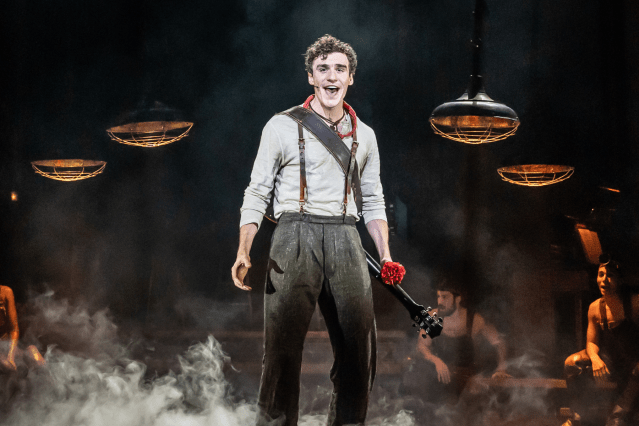House of Bernada Alba (Richmond)
Auriol Smith’s powerful production of Frederico Garcia Lorca’s final play is ideal material for the claustrophobic confines of The Orange Tree’s theatre- in- the- round, and is superbly set by Julie Nelson’s spare design, evoking rural Spain with its Moorish influences. The settings are beautifully lit by John Harris which bear witness to the overbearing Andalusian heat, and the gathering gloom of dusk culminating on stage, with an onslaught of madness and violence.
Lorca was a homosexual liberal, during the most tumultuous period in modern Spain’s history. His writing marked him out as an enemy of the fascists and an early casualty of the Spanish Civil War. He was assassinated in 1936 before The House of Bernada Alba could be staged.
This multi-layered text draws analogies between the traditional code of honour (for which read superstition, law and religion) and the illiberal and inflexible attitudes of the political right, seeking to suppress freedom of speech and thought. In the world of Bernarda Alba, (where men are referred to but do not appear), Lorca’s women must stay at home, obeying the rules of tradition. But the sovereignty of Bernarda over her family, exposes the tormenting paradox of authority that permeates the thick walls of her house. The oppressed becomes the oppressor.
Bernarda Alba herself (superbly played to frightening and devastating effect by Lynn Farleigh) is the dominating matriarch of a household of five repressed daughters whose tyrannical oppression of them is expressed with the proverbial rod of iron, the more so after the death of her husband. Bernarda is so determined to protect the family reputation that she enforces an eight-year mourning period whilst decrying any expression of emotion
In the meantime, a local lothario Pepe El Romano, woos the eldest daughter, Angustias, which ferments the covetous and sexual desires of her sisters, particularly Adela, the discovery of whose clandestine affair with her sister’s fiancé, leads to suicide and a new cycle of grief, bereavement and the threat of public shame.
This new translation by the director and Rebecca Morahan, preserves the intensity of the familial relationships and the increasing mood of foreboding. All the performances are uniformly terrific, (Paula Stockbridge) as Angustias paints a sympathetic portrait as the victim of the dysfunctional sisterhood, while Aimee Cowan as the rebellious, passionate and bolshie Adela, presents a performance of great resonance. In a play with both light and shade, humour is largely in the hands of Sheila Burrell, wonderfully barmy as the barking mad grandmother, and Rowena Cooper’s impressive performance as Bernarda’s sly and knowing housekeeper cum confidante, Poncia.
Another triumph for Sam Walter’s little gem of a producing house. I can’t recommend it too highly.
– Stephen Gilchrist












